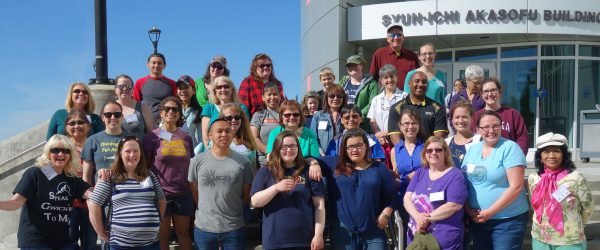Course helps educators engage students in climate change
March 22, 2018
Heather McFarland
907-474-6286

Alaska educators can learn how to help students work on climate change issues during a course offered June 18-22, 2018, through the University of Alaska Fairbanks.
Applications for the course, Climate Change and My Community, are due by April 16.
The course is open to formal and informal Alaska educators and community members. Participants will explore local ways of knowing and observing climate change through community elders, satellites and personal observations. They’ll apply methods used worldwide in the Global Observations and Learning to Benefit the Environment program, also known as GLOBE. During the course and the following year, participants and their students will collaborate with University of Alaska and NASA scientists.
One example of this collaboration from last year's class comes from the community of Kwethluk. Teachers Pauline Morris and Whitney Spiehler teamed up with their students to address riverbank erosion in the village. Several local homes have been vacated due to river erosion, which can be accelerated by permafrost thaw, changing water flow and human activities. After gathering bank erosion data to see if soil moisture influenced erosion rates, they asked the community council to institute a no-wake zone. They also brainstormed new ways to tie boats to the river bank, which they noticed influenced erosion. Team members translated the project into a Yup'ik dance, which they will present along with their research at the GLOBE International meeting in Ireland.
Applicants are encouraged to apply as a team consisting of at least one educator and one person with significant long-term knowledge of the land, such as an elder.
The course is offered by the UAF International Arctic Research Center, the Association of Interior Native Educators and NASA.
To apply, visit this link. Travel assistance and per diem are available for applicants from outside the Fairbanks North Star Borough.
ADDITIONAL CONTACTS: Elena Sparrow, IARC research professor and education outreach director, at ebsparrow@alaska.edu. Katie Spellman, IARC research associate, klspellman@alaska.edu.


